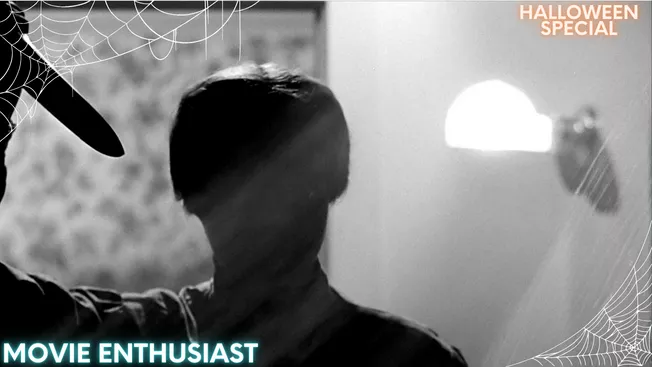
Since its release in 1960, Alfred Hitchcock's "Psycho" has consistently been hailed as one of the most iconic and influential films of all time. A cornerstone of the horror genre, this film masterfully blurs the lines between suspense, horror, and drama, all while delving deep into the intricate workings of the human mind. But to simply categorize "Psycho" as a horror film is an injustice. It is an exploration of identity, duality, and the darkness that resides in us all.
Setting the Stage
From the outset, Hitchcock immerses the audience in a narrative full of deception and secrets. The film begins in Phoenix, Arizona, in a hotel room, where Marion Crane (played by the captivating Janet Leigh) and her lover, Sam Loomis, share a clandestine meeting. Here, the tone is immediately set. The audience is made complicit in their secret. Marion's decision to steal money from her employer is an act of desperation, an attempt to break free from her mundane life. The black and white cinematography, chosen by Hitchcock instead of color, adds to the intensity and starkness of the narrative.
Music: The Unseen Character
Bernard Herrmann's score cannot be overlooked. The screeching violin in the infamous shower scene is as memorable as the visuals themselves. It instills fear, tension, and anticipation. But the genius of Herrmann’s score extends beyond this scene. Throughout the film, the music is a reflection of the internal tumult of the characters, especially Marion and Norman Bates.
Enter Norman Bates
Upon Marion's unexpected detour to the Bates Motel, the story's axis shifts. Anthony Perkins's portrayal of Norman Bates is both unsettling and sympathetic. On one hand, he is the awkward, seemingly harmless motel keeper with an overbearing mother. On the other, he harbors a dark secret that unfolds as the narrative progresses.
Hitchcock uses the character of Norman Bates to explore the duality of human nature. Norman is both the caring son and the deranged killer. His mother, an overbearing presence even in her absence, is both a figment of Norman's fractured psyche and a very real entity in his life.
The Shower Scene: A Cinematic Revolution
When discussing "Psycho", it's impossible not to focus on the shower scene. In mere minutes, Hitchcock rewrote the rules of cinema. It's not just the shocking twist of killing off the leading lady midway through the film that was groundbreaking, but the manner in which it was executed. The rapid cuts, close-ups, and shrieking music combined to create a scene that is as traumatizing for the audience as it is for its victim.
This scene, while horrific, also serves a crucial narrative purpose. It eliminates the previous protagonist, shifting the focus squarely onto Norman and the mystery of the Bates Motel.
Digging Deeper: A Study in Character
What makes "Psycho" stand out is its layered characters. Marion's theft isn't out of malice, but a misguided attempt at finding happiness. Likewise, Norman isn't simply a monster. He's a deeply troubled individual, a victim of his circumstances and his mental illness. The film forces viewers to grapple with their preconceived notions of good and evil, asking them to find empathy in unlikely places.
Hitchcock also subverts expectations with his female characters. While Marion is initially presented as a femme fatale, she quickly becomes a figure of sympathy. On the other hand, Lila Crane (Vera Miles) is assertive, driven, and crucial to unraveling the film's central mystery, challenging typical gender roles of the time.
The Lasting Impact of "Psycho"
The genius of "Psycho" is not just in its unforgettable scenes or its twist ending. It's in its exploration of the human psyche, its challenge to societal norms, and its refusal to provide easy answers. By grounding the film in the real — in flawed characters, real motives, and genuine psychological trauma — Hitchcock elevates "Psycho" from a mere horror film to a profound study of the human condition.
In the decades since its release, "Psycho" has inspired countless filmmakers and has left an indelible mark on popular culture. Its brilliance lies in its ability to evoke both terror and empathy, often in the same breath. It remains, undeniably, one of Hitchcock's most enduring and enigmatic masterpieces.






Share your thoughts!
Be the first to start the conversation.